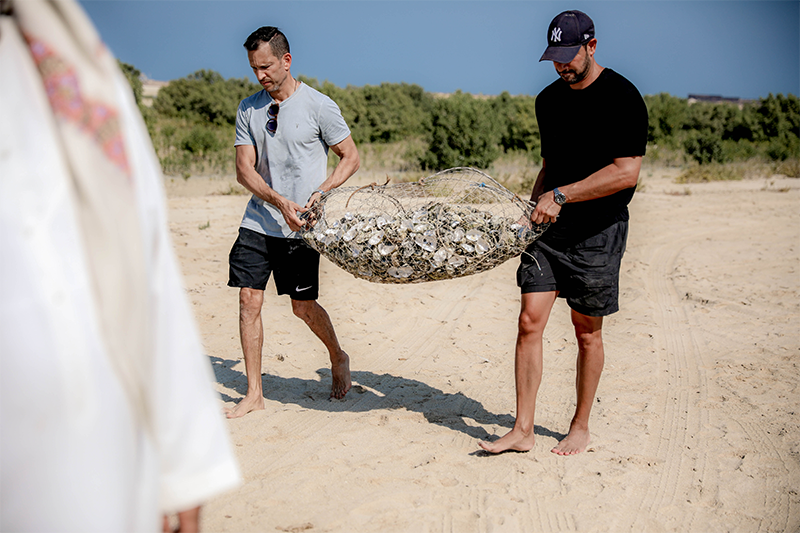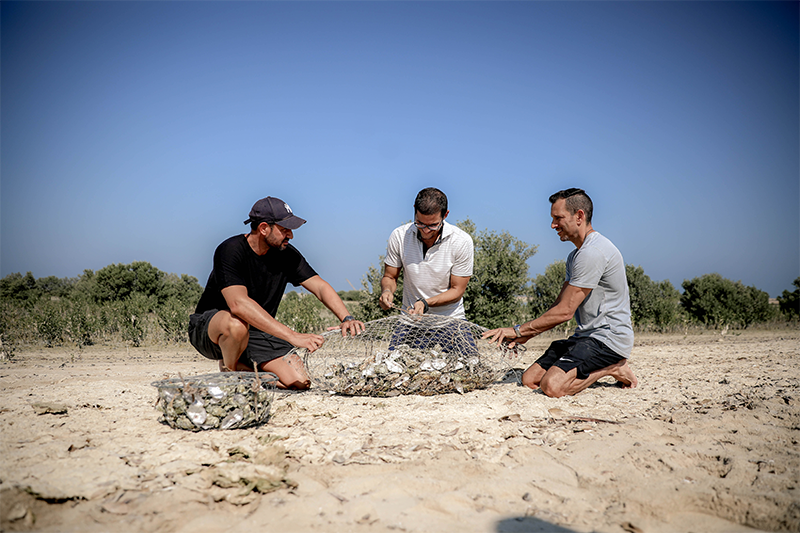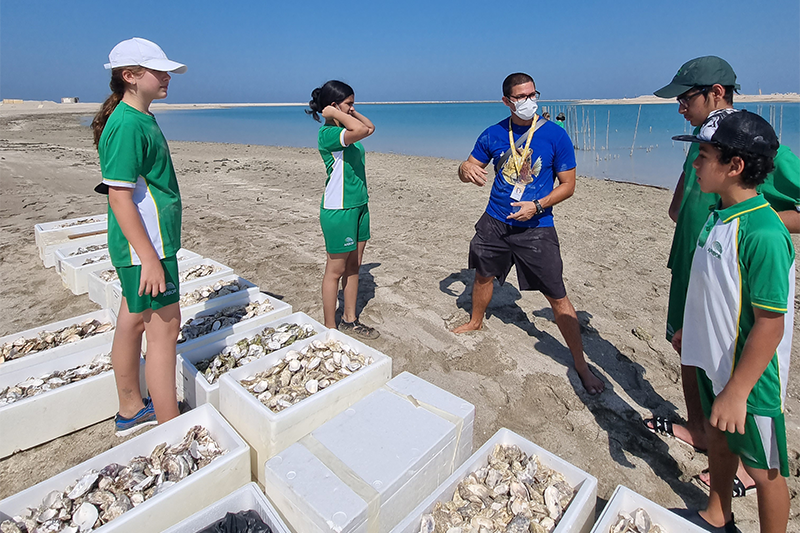The Dubai Oyster Project: A unique reef restoration project making a difference
The MAINE New England Brasserie Company has joined forces with The Arbor School for a first-of-its-kind initiative…
While you’re slurping down oysters on an evening dinner date or at a luxe weekend brunch, you probably aren’t considering what happens to the discarded shells. Well, through a first-of-its-kind initiative, they might not be destined for landfill like usual.
Teaming up with The Arbor School, The MAINE New England Brasserie Company has launched The Dubai Oyster Project. Transforming the fate of discarded oyster shells, the new initiative is using them to create artificial reefs.

Thus far, the Maine has donated roughly 250,000 oyster shells to the community-driven reef restoration project. Each oyster regenerated over time is then able to filter an estimated 50 gallons of water each day, playing its part in maintaining the UAE’s healthy waters.
The founders of The Dubai Oyster project – Joey Ghazal, Founder & Managing Partner of The MAINE New England Brasserie Company; Fadi Abu Ghali, a Dubai based entrepreneur; the Arbor School, and Emirates Marine Environmental Group (EMEG) – have big ambitions for the project. Alongside a wider mission to promote marine biodiversity, The Dubai Oyster Project hopes to create a natural habitat for the endangered Hawksbill Turtle.

“Our goal is to donate at least a million oyster shells a year from The Dubai Oyster Project. Helping our environment is everyone’s responsibility, however small, it’s our obligation to think of ways to improve our water and it is our sincerest hope that other restaurants and hotels will donate their oyster shells towards this program” said Joey Ghazal, Founder and Managing Director of The MAINE.
How it works

Oceanography students at the Arbor School are filling the discarded fish traps, known locally as gargoors, with the oyster shells, so that they can create structures that marine plants, marine life and oysters can safely and healthily grow. As an ongoing part of their studies, the Arbor School’s students will experiment with different placements of reef blocks and monitor species colonisation, optimising the process and expanding reef-building efforts.
These will become ‘biological building blocks’, and placed offshore by EMEG at its reserve in Ghantoot, which is known as a process called ecological restoration.
While the reserve in Ghantoot is the initial location for the Dubai Oyster Project, it’s hoped the initative will be expanded to other areas along the coastline if it proves to be successful.
